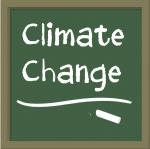
Climate has changed in the past — sometimes slowly, sometimes abruptly — but now it is changing because humans have become a force of nature and are altering the flow of matter and energy on the planet. It is thus increasingly important for the science of climate change to be taught, both in formal and informal educational environments, in order for future citizens to be able to make scientifically informed decisions about the consequences of climate change.
But there are challenges that educators face in helping their students attain climate literacy. No matter what the setting or “teachable moment,” any educator tackling the subject of climate change will need to be well informed about climate science and related topics, use effective strategies to convey the information to the learners, and be able to respond to climate change denial or doubt. All of these needs, and ways of meeting them, are briefly discussed in the following pages of Teaching about Climate Change.
Climate Change 101 reviews the basics of climate change, and the links in Resources for Teaching and Learning about Climate Change provide more information especially useful for educators. Voices for Climate Change Education collects organizational statements in support of teaching about climate change. Or continue to the next section, and learn more about the Principles of Climate Literacy.
